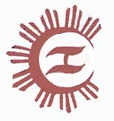|
|
|
 |
EVERY YEARIS A YEAR OF HEROESBy Ed Aurelio C. ReyesKamalaysayan Writers and Speakers(August 1995) |
|
![]() (This page has a CYBER TALK-BACK instant feedback box at the bottom.)
(This page has a CYBER TALK-BACK instant feedback box at the bottom.)
![]()
![]() ACK
IN my student days, we celebrated National Heroes' Day on November 30th every
year. That date is now marked as Bonifacio Day, and I am glad that the Katipunan
Supremo no longer has to share his day as an individual national hero with all
the other heroes known and unknown. National Heroes Day has since been
transferred to the last Sunday of every August. Why that particular day was
chosen is something I do know.
ACK
IN my student days, we celebrated National Heroes' Day on November 30th every
year. That date is now marked as Bonifacio Day, and I am glad that the Katipunan
Supremo no longer has to share his day as an individual national hero with all
the other heroes known and unknown. National Heroes Day has since been
transferred to the last Sunday of every August. Why that particular day was
chosen is something I do know.
I have already worked out a concept of heroism, or more precisely, of kabayanihan , when I joined in the summer of last year the conceptualization of a weekly educational television program, titled Bayani which has since been running on ABS-CBN Channel 2 every Saturday morning. One of the most profound realizations that I had was that the word "hero" does not simply translate into "bayani." Not only the language but the very concepts of those two words are different. The English word stresses the positive capabilities peculiar to an individual, usually one favored by the deities, while bayani , which was first used as a verb, meaning, to serve one's fellowmen without expecting payment, emphasized community relations.
At any rate, neither the word "hero" nor the word " bayani " would validly cause us to declare a full year, even if it be 1896 itself, as "Taon ng mga Bayani." It's all right for one day in a year, because such is useful for a cyclic remembrance within a reasonably short timeframe like once every year. What would be the cycle of a "Year of Heroes"? And how would the heroes of other periods, like the World War II veterans, for instance, feel that they are included in the heroes being honored.
I suspect something behind this declaration of 1996 as "Taon ng mga Bayani," which I have frankly told my friend Rep. Sandy Ocampo, who chairs the National Centennial Commission's Committee for the 1996 Year of Heroes. And it is this: the NCC cannot afford to completely ignore the centennial of the 1896 Revolution, but it does not want to celebrate that historic event because some of its leaders are anti-Bonifacio and some others tend to simplistically equate the Revolution and the Katipunan to bolos and bloodshed. Its 1996 activities clearly indicate this simplistic thinking.
![]()
|
|
|
..
|
![]()
![]()
![]() back to the website opening window
back to the columns opening window
back to the website opening window
back to the columns opening window![]()